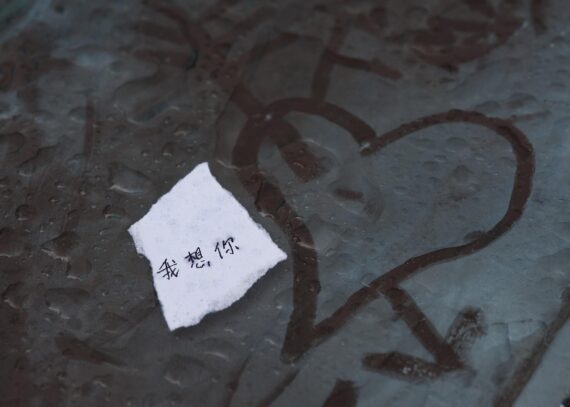Chinese Compound Words: Chinese Words Are Easy, But Maybe We Are BIASED
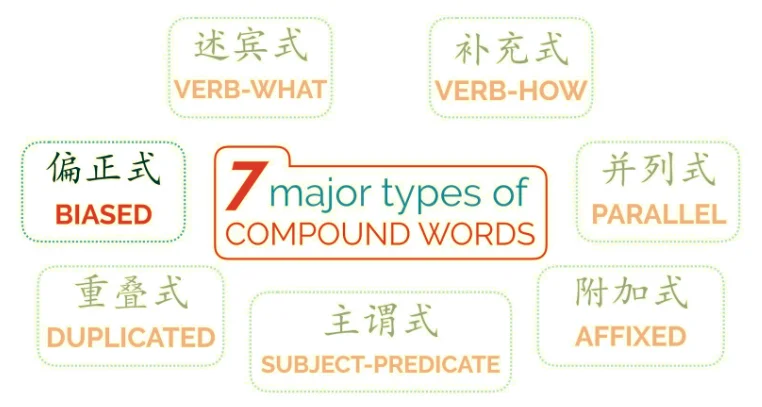
Word Structure: “Biased” 偏正式
This is part 8 of an 8-part series exploring all 7 types of Chinese compound words. Click below for the other parts:
Part 1 – Part 2 – Part 3 – Part 4 – Part 5 – Part 6 – Part 7 – Part 8
Biased 偏正式 (piān zhèngshì) Chinese Compound Words
The second morpheme in a “Biased” word is the more important of the two. The first morpheme is merely describing the second morpheme. There are three types:
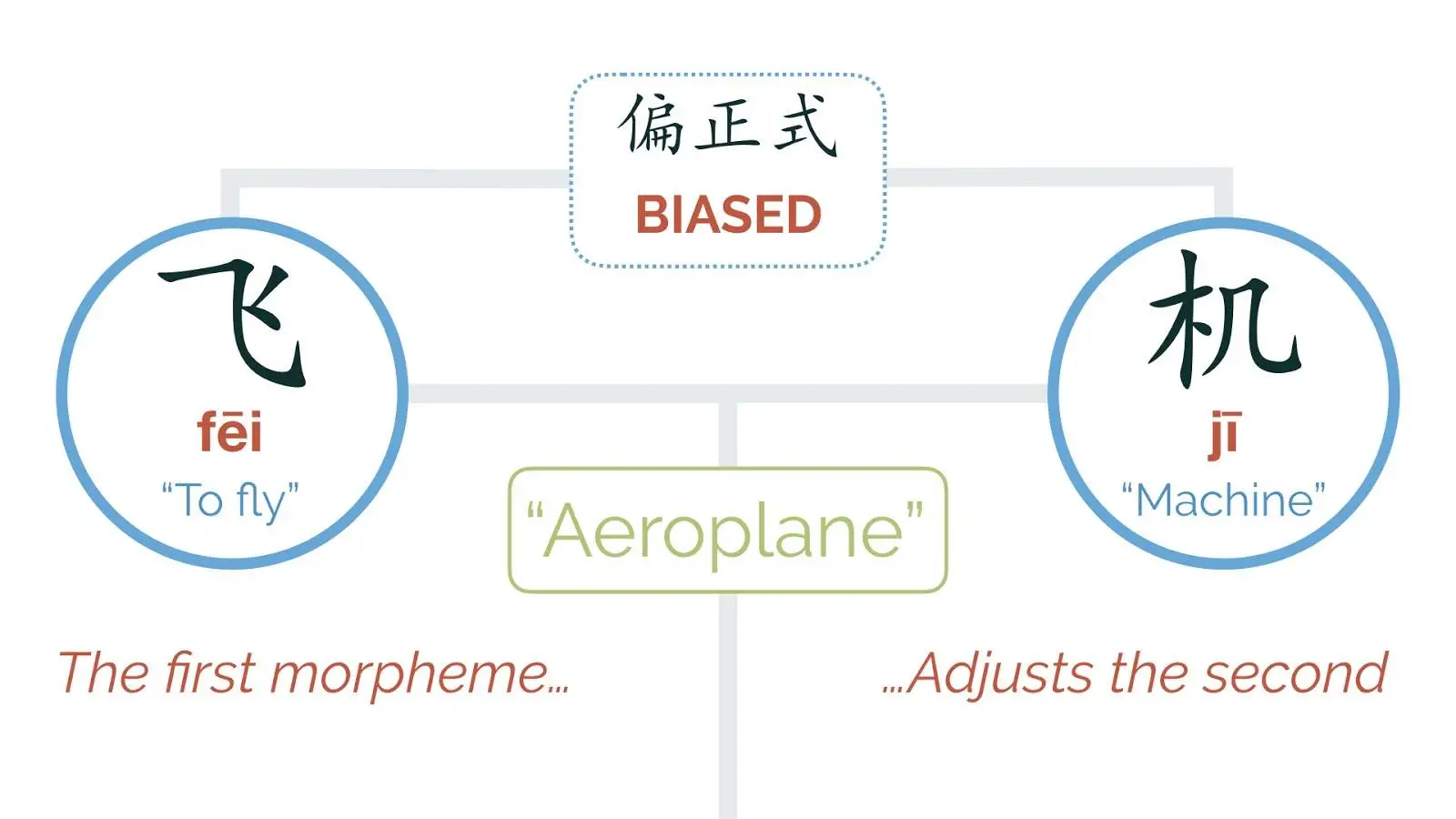
The Characteristic of Nouns
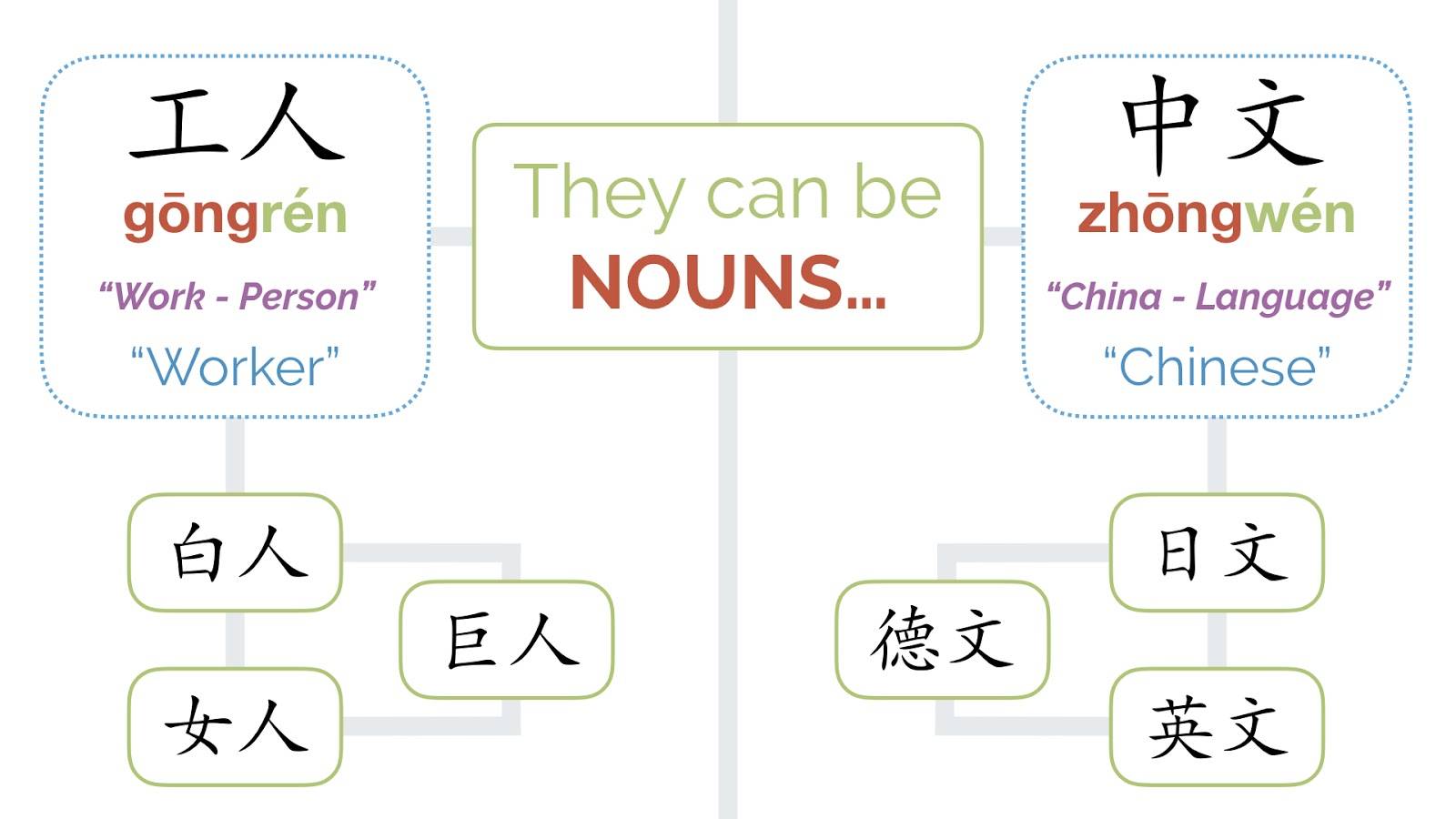
| 工人 gōngrén | 凡人 fánrén | 文人 wénrén |
| 富人 fùrén | 外人 wàirén | 土人 tǔrén |
| 穷人 qióngrén | 名人 míngrén | 黑人 hēirén |
| 女人 nǚrén | 外国人 wàiguórén | 白人 báirén |
| 男人 nánrén | 大人 dàrén | 死人 sǐrén |
All of these are people 人 (rén). The first morpheme describes what characteristic each one means.
工人 (gōngrén) is a worker (worker person). 女人 (nǚrén) is a woman (woman person). 富人 (fù rén) is a rich person, etc.
| 工具 gōngjù | 刀具 dāojù | 玩具 wánjù |
具 means “tool.” 工具 (work tool) is a general term for all tools. The characters 刀具 (knife tool) is a knife that is specifically used as a tool, and 玩具 (play tool) is a toy for children. All are “tools” (the 2nd morpheme), and the first morpheme describes the characteristic of the tool. This makes them Chinese compound words because their meaning is made up of two morphemes.
| 中文 zhōngwén | 日文 rìwén | 英文 yīngwén |
So, the Chinese Character 文 (wén) refers to the language, and which language it is referring to is explained in the first morpheme. Chinese (中 zhōng), Japanese (日 hi) & English (英 yīng)
Chinese Compound Words With 上 shàng – on, upon
早上 zǎoshàng – morning
山上 shānshàng– on the mountain, on a mountain
Chinese Compound Words With 光 guāng- ray or beam of light
月光 yuèguāng – moonlight
日光 rìguāng – sunlight
灯光 dēngguāng – lamplight
Chinese Compound Words With 水 shuǐ- water or liquid
口水 kóushuǐ – saliva
白水 báishuǐ – clear water
自来水 zìláishuǐ – tap water
泉水 quánshuǐ – spring water
江水 jiāngshuǐ – river water
河水 héshuǐ – river water
湖水 húshuǐ – lake water
墨水 mòshuǐ – ink
源 yuán- source, the source
来源 láiyuán – source (of something)
光源 guāngyuán – light source
水源 shuǐyuán – water source
河源 héyuán – river source
Chinese Compound Words With 果 guǒ – fruit
水果 shuíguǒ – fruit (in general)
苹果 píngguǒ – apple
芒果 mángguǒ – mango
国 guó- country
中国 zhōngguó – China
美国 měiguó – America
英国 yīngguó – England
外国 wàiguó – foreign countries (outside+country)
内 nèi- within/in & 外 wài- outside, out of
国内 guónèi – domestic (country+inside)
室内 shìnèi – indoors (room+inside)
体内 tǐnèi – inside the body (body+inside)
门内 ménnèi – inside the door (inside+door)
国外 guówài – foreign (country+outside)
室外 shìwài – outdoor (room+outside)
体外 tǐwài – outside the body (outside+body)
门外 ménwài – outside the door (door+outside)
Chinese Compound Words With: 时 shí- time
小时- xiǎoshí – hour (small+time)
到时 dàoshí – at the time of arrival (arrive+time)
同时 tóngshí – at the same time (same+time)
力 lì- power, ability
压力 yālì – pressure, stress (press down+power)
能力 nénglì – ability (ability+power)
智力 zhìlì – intelligence (wisdom+ability)
魄力 pòlì – boldness (spirit+ability)
威力 wēilì – power, might (might+power)
人力 rénlì – workforce (person+power)
活力 huólì – vitality (life+power)
火力 huǒlì – firepower (fire+power)
Chinese Compound Words With 灾 zāi- disaster
火灾 huǒzāi – fire disaster
水灾 shuǐzāi – flood (or any water-related disaster)
蝗灾 huángzāi – Plague of locusts
The First Morpheme adjusts the Second Morpheme turning it into a Chinese Compound Word
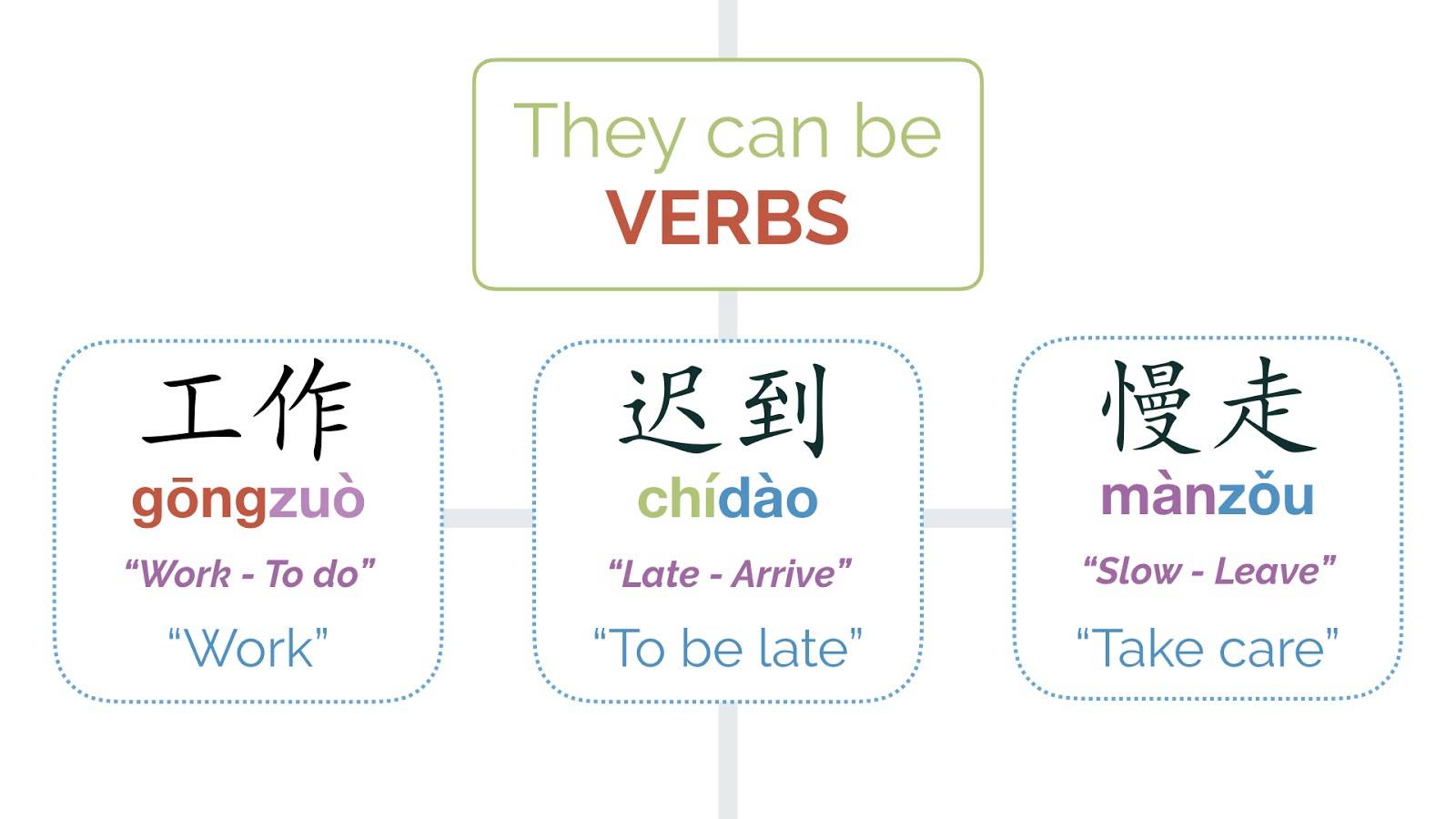
热爱 rèài
ardently love, have a deep love for (hot/passionate & love, not just any kind of love, passionate love. “Love” is still the “biased” morpheme)
痛恨 tònghèn
hate bitterly, utterly detest (pain & hate, not just any kind of hate, hate that causes pain. “Hate” is still the “biased” morpheme of the Chinese Compound Word)
迟到 chídào
to arrive late (late & arrive, not just any kind of arrival, late arrival. “Arrive” is still the “biased” morpheme)
轻视 qīngshì
belittle, look down on, underrate (not important & look at, not just “looking at” anything, looking at something with a feeling that it is unimportant. “Look at” is still the “biased” morpheme)
公审 gōngshěn
Open Trial (in court) (public & interrogate, not just any interrogation, a public one. “Interrogate” is still the “biased” morpheme)
公演 gōngyǎn
Public performance (public & performance, not just any performance, a public one. “Performance” is still the “biased” morpheme)
静坐 jìngzuò
Sit Quietly (quiet & sit, not just any type of sitting, quiet sitting. “Sit” is still the “biased” morpheme)
高涨 gāozhǎng
rise; upsurge; run high (high & rise, not just any kind of rise, a *high* type of rise. “Rise” is still the “biased” morpheme)
Modifying Adjectives and Chinese Compound Words
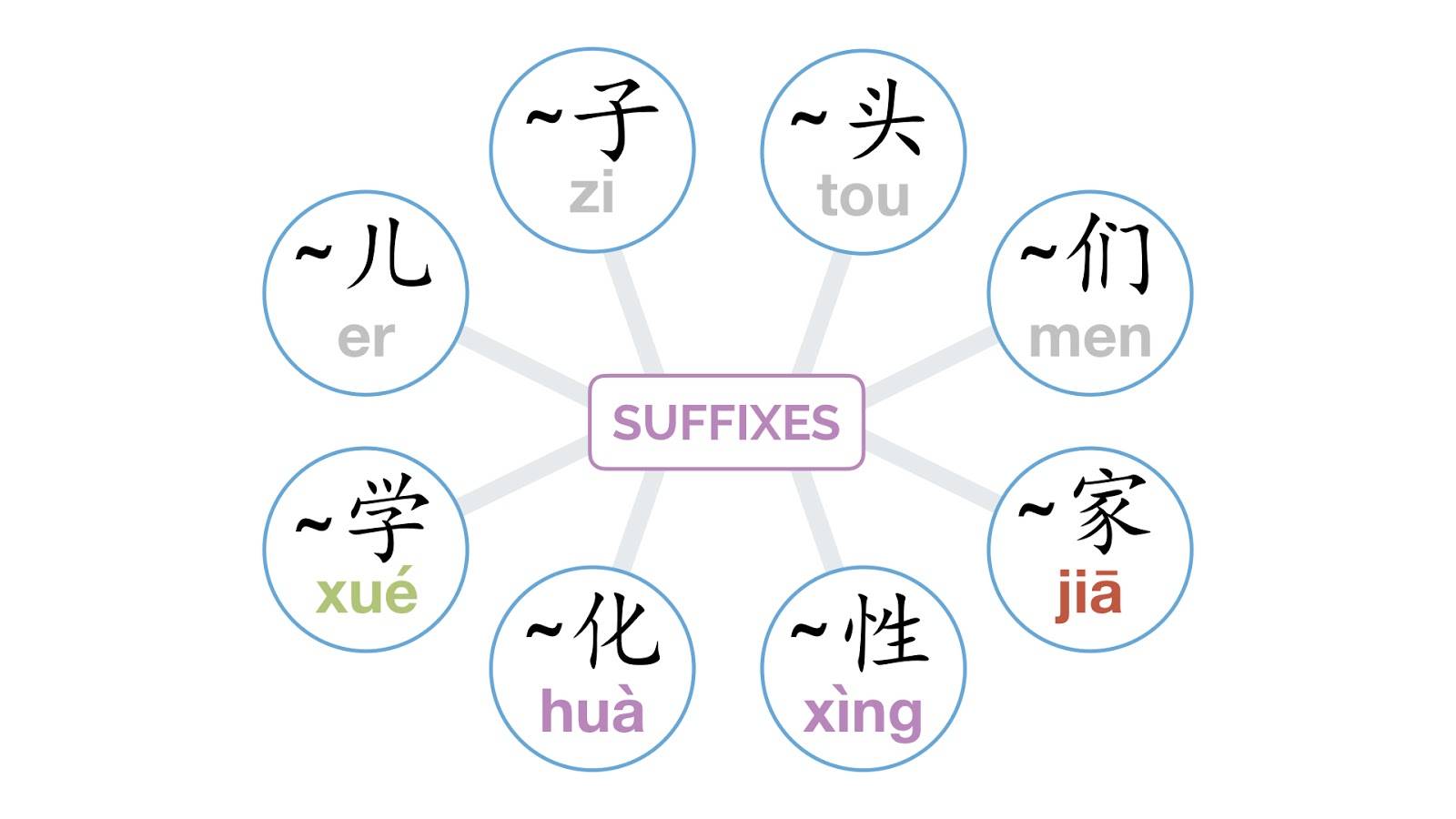
These Biased words are similar to how we would make metaphorical comparisons in English like “as cold as ice” or “as straight as an arrow.” The second morpheme is still the more important; the first one is the “comparative” morpheme. Therefore they are Chinese Compound Words. Here are the examples:
冰冷 bīnglěng – Cool as ice (ice & cool)
火热 huǒrè – Hot as fire (fire & hot)
笔直 bǐzhí – Straight as a pen (pen & straight)
草绿 cǎolǜ – Green as grass (grass & green)
雪白 xuěbái – White as snow (snow & white)
枣红 zǎohóng – Red as a jujube (jujube & red)
银灰 yínhuī – Grey like silver (silver & grey)
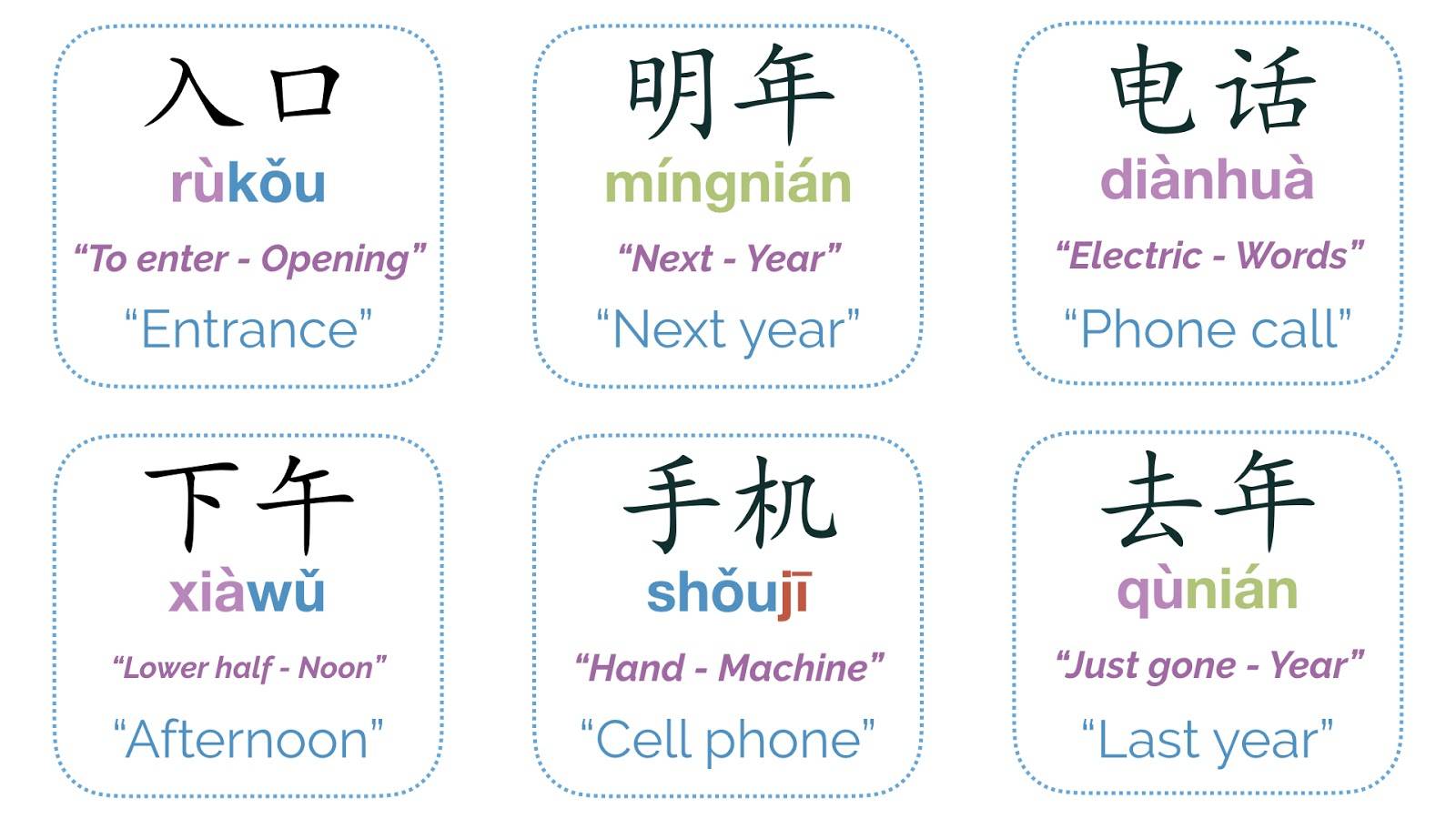
Learn how to pronounce and also learn Chinese characters for free with our 14-day free trial giving you full access to our entire curriculum.
You will be able to read, write and pronounce Chinese characters and get an overall “plan of attack” for your ENTIRE Chinese journey all the way to fluency and literacy.








